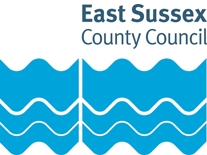Have you heard of social prescribing? It’s a term that’s been used a lot by health and social care organisations over the last few years, but what does it actually mean?
When you think of prescribing you probably think of medicine, but social prescribing means getting connected to non-medical things that can boost your health and wellbeing. This could be activities, support groups, volunteers, services, and other opportunities. Depending on what you need and want, it could be for:
- Support with finances
- Getting more active
- Support with mental wellbeing
- Becoming healthier
- Getting more socially connected
- Living well and more independently
In the health and social care system, social prescribing usually happens through a social prescribing link worker who will be working closely with your G.P practice. You may also have heard terms like ‘community connectors’ and ‘community navigators’, they all essentially provide social prescribing.
From choirs, to gardening, exercise classes, social groups, NHS services, job centres, counselling and more – social prescribing can connect you to the most appropriate support for you. Everyone is unique and each of us is the expert on ourselves, and social prescribing understands that. The aim is to enable you to make informed and positive changes to your own life.
Social prescribing also aims to work with and support local groups, to help make sure they can carry on offering their support to people.
It’s important to remember though that we can all be social prescribers! Spreading the word about the brilliant new class you’ve joined, helping to connect like-minded acquaintances, volunteering your time for a charity or group – these are just a few examples of how we can all help our communities get and stay connected.
Community is at the heart of social prescribing, in particular helping people know and connect to what’s going on around them.
Social prescribing in East Sussex
At the moment people may get social prescribing services directly through their GP practice, or through another social prescribing service that their GP can access. One of our aims over the next few months as the East Sussex Health and Social Care Partnership is to develop our approach to social prescribing in the county.
One of the important ways we’ll do this is through more access to social prescribing link workers employed by Primary Care Networks (PCNs). PCNs are where groups of GP practices work together to better serve their local community. PCNs are relatively new and have been set up all over the country. We have 12 in East Sussex, find out more about them here: Primary Care Networks.
By working together as PCNs, GP practices can be more proactive and co-ordinated, with more joined up care for local people. It might mean that services are provided at a different GP practice to your usual one, like during the COVID-19 vaccine roll out.
One aim for PCNs is that each will have social prescribing link workers available that can support patients in their local area. PCNs will also be asked to ensure their social prescribing offer is based on what local people need most.
Growing and connecting communities in your own area
In terms of your own role in supporting your community, and growing opportunities for people to get connected to, the Making It Happen programme can help.
Making It Happen aims to help people to come together in their neighbourhoods to create positive change to the things that matter to them most.
If you’ve got a good idea to make a positive difference in your neighbourhood, Making It Happen can help you turn your idea into reality. Take a look at our article on the project for more information.

